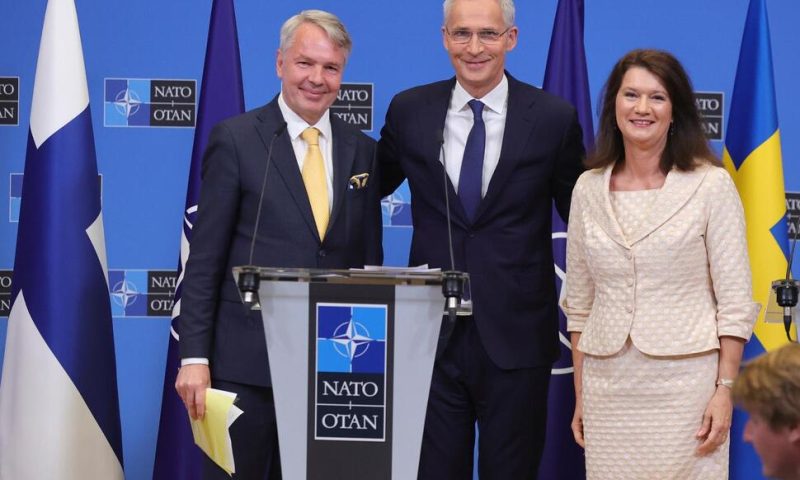Finland’s Parliament has passed amended legislation on border security that allows for the closure of crossing points with Russia.
HELSINKI — Finland’s Parliament on Thursday passed amended legislation on border security that allows for the closure of crossing points with Russia amid fears that Moscow could choose to send large numbers of migrants to the frontier.
The move by lawmakers came just two days after NATO’s 30 members signed formal accession protocols for Finland and Sweden to join the alliance — an outcome that has angered Russia. The two Nordic nations’ membership bids were approved at a NATO summit at the end of June in Madrid and several alliance members have already moved to ratify their accession.
The amendments approved by Finnish lawmakers will give the center-left government led by Prime Minister Sanna Marin wider powers to restrict border traffic in exceptional situations, particularly on the 1,340-kilometer (830-mile) border with Russia, the longest of any European Union member.
The changes would also allow Finland, a nation of 5.5 million, to build barriers and fences along the border with Russia if needed. Finnish President Sauli Niinisto is due to sign the amendments into law on Friday.
The legislative reform was prompted by the government’s concern that Russia would try to influence Finland by organizing large numbers of asylum-seekers to the border — something that happened at northern Finnish crossing points in 2015 and 2016 as Russian authorities reportedly ushered thousands of asylum-seekers there.
The risk of such hybrid threats from Moscow is seen as being particularly high now that Finland has become an observer member of NATO, but not yet a full member enjoying the alliance’s security guarantees, pending legislative approvals in all 30 member states.
Russia has repeatedly said over the past few years that it is against Helsinki and Stockholm joining NATO. But both Finland and Sweden decided to seek membership in the alliance after Russia invaded Ukraine on Feb. 24.
“The security situation in Finland and Europe has changed fundamentally in recent months, and especially the risk of a different kind of hybrid influence has increased,” Finnish Justice Minister Anna-Maja Henriksson said in a statement.
“I’m glad that a new exception which covers hybrid threats, in particular, was added to the preparedness act so quickly with the broad support of the Parliament,” she said.
Following the ratification of Sweden and Finland’s NATO membership by Canada, Denmark, Norway, Iceland and Estonia, the Albanian Parliament on Thursday voted overwhelmingly in favor of welcoming the Nordic countries as new members of the alliance.
“Sweden and Finland are an added value to the alliance for their strategic and military values,” Albania’s foreign minister, Olta Xhacka, said in a speech to lawmakers. “Their membership is a historic development that should be supported without any hesitation.”

